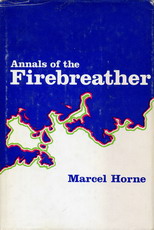
Ulli Diemer
Ulli Diemer — Radical Digressions
Articles Lists
- Selected Articles
- Articles in English
- Articles in French
- Articles in Spanish
- Articles in German
- Articles in Other Languages
- Articles A-Z
- RSS feed
- Subject Index
Selected Topics
- Alternative Media
- Anarchism
- Bullshit
- Capital Punishment
- Censorship
- Chess
- Civil Liberties
- Collective Memory
- Community Organizing
- Consensus Decision-making
- Democratization
- Double Standards
- Drinking Water
- Free Speech
- Guilt
- Health Care
- History
- Identity Politics
- Interviews & Conversations
- Israel/Palestine
- Libertarian Socialism
- Marxism
- Men’s Issues
- Moments
- Monogamy
- Neo-Liberalism
- New Democratic Party (NDP)
- Political Humour/Satire
- Public Safety
- Safe Spaces
- Self-Determination
- Socialism
- Spam
- Revolution
- Trotskyism
Blogs & Notes
- Latest Post
- Notebook 11
- Notebook 10
- Notebook 9
- Notebook 8
- Notebook 7
- Notebook 6
- Notebook 5
- Notebook 4
- Notebook 3
- Notebook 2
- Notebook 1
- Scrapbook
Compilations & Resources
- Connexions
- Other Voices newsletter
- Seeds of Fire
- Alternative Media List
- Manifestos & Visions
- Marxism page
- Socialism page
- Organizing Resources
- People’s History, Memory, Archives
- Connexions Quotations page
- Sources
- What I’ve been reading
- What I’ve been watching
Words of Wisdom
- Revolution is necessary not only because the ruling class cannot be overthrown any other way, but also because the class overthrowing it can only in a revolution succeed in ridding itself of all the muck of ages and become fitted to found society anew.
- – Karl Marx & Friedrich Engels

Breathing fire
Book review by Ulli Diemer

Annals of the Firebreather by Marcel Horne Peter Martin Associates, $8.95
“I have always been a dramatic mother-fucker,” says Marcel Horne.
It’s the truth. From his career as a youthful “town asshole” in Leamington Ontario, to his trips criss-crossing the continent, with endless carnivals, to his spells in jail, to his finding – or losing – himself in his fierce obsession with the gypsy art of firebreathing, the hero – or is it the anti-hero? – of Annals of the Firebreather does nothing in half-measures. Like a lumpen-Ulysses, he is driven by some nameless compulsion to live his life as hard, and as fully, as he can.
A dramatic mother-fucker.
Car theft and armed robbery at seventeen. Hitching to western Canada - “somewhere” – with 25 cents in his pocket. Stealing food. Working with carnivals: “drinking, fighting, and fucking.” Face and mouth forever scorched as he learned to breathe fire. Hooked on speed. Making a religion out of his fire-breathing. And having a son.
It was for his son that he decided to record his experiences – and they’re far from over yet, it seems – in this autobiography. A writer friend persuaded him to have it published. The result is a good yarn, but it’s more than that too: a remarkably compelling piece of writing. And starkly honest. Every word of it may not be the literal truth, but true it is, nonetheless. That much you can tell.
Starting out as a kid who saw it differently from most. And made choices different than most of us make.
“Watching people you grew up with slaving in the fields all day and having nothing. You live for the finance company and the bank and yet eat scraps like a dog to save money that goes into the banks. And then you die.
“What in the hell have you lived for? What do you have in life? A six quart basket of tomatoes and a mortgage.
“And the rich get richer.
“No man, this is not for me. I want to grow up and be human. Are there any left?
“Someday wherever I go, when people hear my name – they’ll know who I am. I promise myself.”
Marcel Horne’s instincts are the kind that let him survive disasters, not the kind that would enable him to avoid them. His is the kind of life most of us will prefer to read about rather than lead. But we may feel just a bit guilty about it when we speculate, uncomfortably, about the things we’re missing.
What the hell. It’s a good book. Read it.
December 7, 1973. First published in The Varsity.